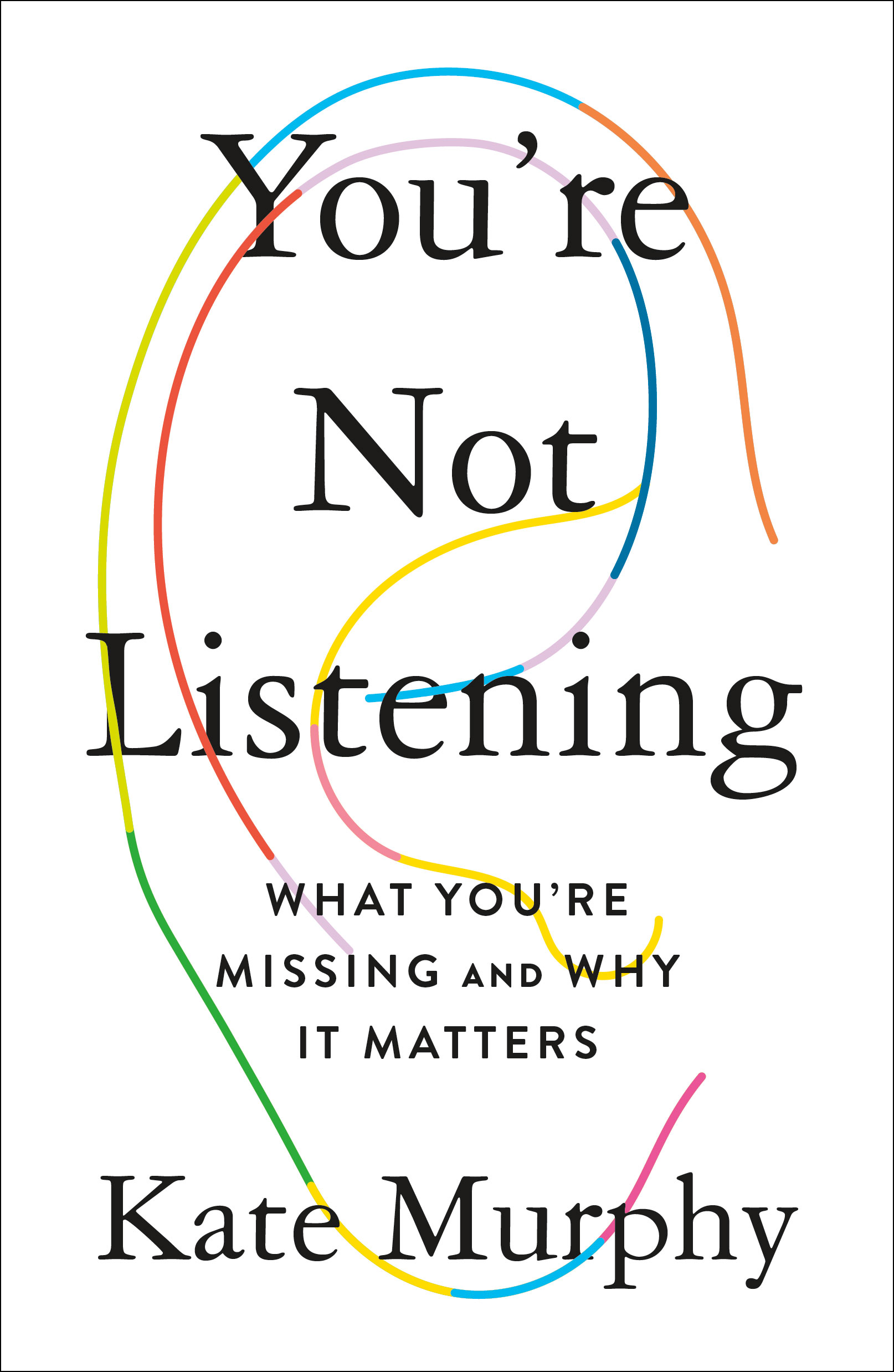
It’s that time of year! Holiday party invitations are coming fast, and chances are you’re going to end up chatting with strangers about the weather, work, travel … all the typical, safe, and boring topics. But after reading journalist Kate Murphy’s You’re Not Listening: What You’re Missing and Why It Matters, we know that everyone has something interesting to say, if we only let them.
Want to have a good discussion with someone you just met? Don’t worry about having a lot to talk about. Instead, listen to them and let the questions form naturally.
Why Listen?
We’ve been taught that if someone is speaking, they’re in control. When someone holds the floor at a party, or a conference room table, or a TED talk, they’re most likely an expert or, at the very least, a confident person who deserves our momentary attention. But to assume that your role as a listener is passive or powerless would be a mistake. Listening to others, in fact, will empower you.
Murphy explains, “Done well and with deliberation, listening can transform your understanding of people and the world around you, which inevitably enriches and elevates your experience and existence. It is how you develop wisdom and form meaningful relationships.” Thus, the first goal of listening is simply understanding others. You don’t have to agree with, instruct, entertain, or convince anyone, only understand.
How to Support a Conversation
Imagine you are standing next to a punch bowl, talking to someone you barely know about their upcoming work trip. The urge to mentally prepare what to say about your own work trips will be strong. The truth is, we think a lot faster than other people can talk, and responding with similar information often feels like the right thing to do. But after you monologue your travel itinerary, where will the conversation go? Probably into a puddle of awkward silence.
There’s a simple way to avoid this: Support what the other person is saying by asking follow-up questions. Of course, to ask relevant questions, you have to be listening to them with no plans to talk about yourself. Have you ever had a conversation with a 5-year-old who asked you “…but why?” over and over, and next thing you know you’re this close to talking about really deep subjects like death, religion, or how babies are made? We can learn a lot from the natural curiosity of children when it comes to teasing out honest, human responses to even the simplest topics.
What you shouldn’t do is shift the conversation to yourself. If someone tells you that they’re traveling to Brazil, and you respond with “My cousin lives in Brazil!” then you’re not supporting the conversation. You’re shifting the attention onto yourself. Instead, ask respectful questions and keep asking them until the conversation reaches into more profound topics that are important to them, whether it’s related to the original topic or not. Remember, your goal is to understand them.
Keep in mind it’s possible to find yourself in a situation where uncomfortable stories are shared. Murphy reminds us to resist our good intentions to offer advice, saying, “Your answer to someone else’s deepest difficulties merely reflects what you would do if you were that person, which you are not. The best you can do is listen. Try to understand what the person is facing and how it feels. This in itself can lead to solutions.” In other words, by letting the other person talk it out, you’re helping them find their own solutions.
What a Good Conversation Feels Like
Hearing is one of the first senses we develop in life and how we first connect to one another. As Murphy describes, it “plugs you into life.” And listening is active and intentional hearing. Think about your best friend or a relative with whom you “click.” You may not speak to them for years, but your next conversation is effortless.
We may call it a magical mind-meld, clicking, or being plugged in, but science also has a name for it: synching. Studies at Princeton University and Dartmouth College both showed that the brain waves of a listener will measurably synchronize to the brain waves of a speaker. In this way, how we listen and who we listen to can literally influence the way we think. Murphy explains, “Our brains not only sync up the moment someone tells us something, the resulting understanding and connection influences how we process subsequent information. The more you listen to someone and the more that person listens to you, the more likely you two will be of like minds.” So, the next time you feel like you really “get” someone, even if you just met them, it’s because your brain waves are in sync.
To be clear, you don’t have to dive right into the deep end with a stranger while they unpack their life. Murphy even extolls the virtues of a good gossip session. She says, “We all do it because gossip allows us to judge who is trustworthy, who we want to emulate, how much we can get away with, and who are likely allies or adversaries. In this way, listening to gossip contributes to our development as ethical, moral members of society.” Gossip is simply a conversation about someone who isn’t present, and Murphy shows us that it doesn’t have to be negative. In fact, it’s a valuable tool for learning lessons from people we may never meet. In the meantime, you and your gossip partner get to sync brain waves and build a connection with each other. As long as you’re both respectful, it’s a win-win.
Silence is a Gift
In a conversation, any silence can feel awkward. This is mostly cultural; Americans’ comfort zone for silence lasts about four seconds. After that, the temptation to speak and fill the void can be overwhelming or even upsetting as you try to analyze what the other person’s silence means. (Did I ask the wrong question? Are they bored?) As a listener, resist filling the silence with chatter. Perhaps the speaker is just trying to find the words to finish their thought. You’ll find that by letting the silence happen, the speaker will eventually pick up the thread, and what they say will be a more meaningful response than you could have predicted. Their silence is not your responsibility. It doesn’t need fixing. It’s also possible that they are not used to someone truly listening to them. Your silence, then, is a gift to you both.
Respectfully waiting for someone else to compose their thoughts, believe it or not, is probably more difficult today than it has ever been. The reason: technology. If your devices are pinging away with notifications, yanking your attention to them instead of the person you’re supposed to be listening to, simply turn them off or put them away. Nothing says, “I have better things to do than get to know you” like a person bent over their phone, swiping away. You’ll never meet a cool co-worker, hear an amazing story about Brazil, or get some eye-opening gossip about the CEO if you’re plugged into your phone instead of being plugged into your life.




